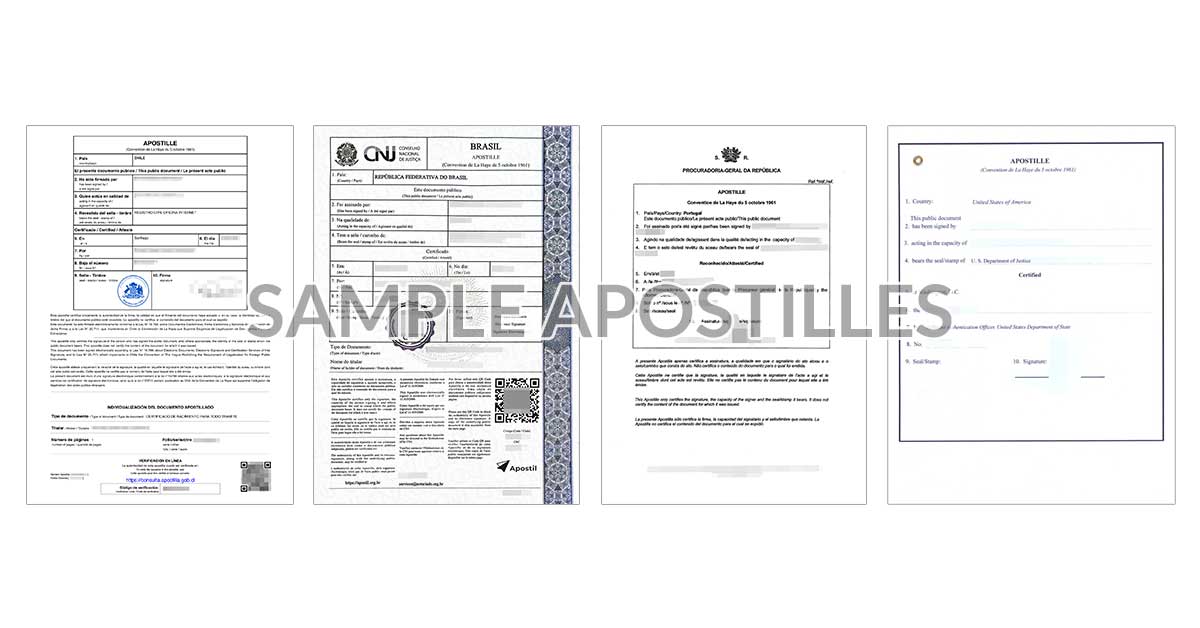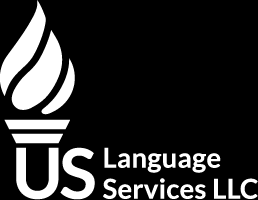What Is An Apostille?

An apostille is a certification that verifies the authenticity of a document before it is used in another country. The apostille itself is a physical certificate that is attached to the document it is verifying. The apostille typically has the signature, seal, or stamp of the competent authority which issued it. An apostille seems similar to a notarization, but it is not the same thing.
An apostille is only used between nations that are members of the 1961 Hague Apostille Convention. This convention was held to make it simpler for each nation to recognize the authenticity of documents being received from other nations participating in the Hague Convention. An apostille eliminates the need for further authentication of a document by embassies or consulates.
An apostille must be issued by the country where the document originated. This concept may be confusing, so it’s helpful to use a hypothetical scenario.
Of course, apostilles are used for many documents, not just marriage certificates.
In this guide, we will cover these issues:
- Is An Apostille The Same As A Notarization?
- Who Can Issue An Apostille?
- The Difference Between Federal Vs. State Apostilles in the U.S.
- What U.S. Documents Need A Federal Apostille?
- What U.S. Documents Need A State Apostille?
- Apostilles For Educational Documents
- How Do You Get A Power Of Attorney Apostilled?
- Will I Need To Get My Documents Translated?
Is An Apostille The Same As A Notarization?
No, an apostille and a notarization serve different purposes.
An apostille is a special way to verify the authenticity of documents when they’re being used in an international context. The apostille makes it easier for foreign countries to recognize documents. Apostilles can only be used between countries that are members of the 1961 Hague Apostille Convention.
Notarization is when a notary public acts as an impartial witness when important documents are signed. The notary’s role is to verify the identity of the signer and to make sure the document is being signed voluntarily and with full understanding.
Who Can Issue An Apostille?
The most important thing to remember is that an apostille must be issued by the country where the document originated.
For example, if you need an apostille for an Australian marriage certificate, you will obtain the apostille in Australia. Or, if you need an apostille for an Italian birth certificate, the apostille must be obtained in Italy.
Each country decides which authorities are eligible to issue apostilles. The specific offices or authorities that can issue an apostille will vary by country. Here are some general examples of where to get an apostille:
- Government Offices: In many countries, apostilles are issued by government offices or agencies that handle international affairs, document legalization, or authentication. These offices are typically responsible for making sure documents are valid and authentic. Some specific examples are:
- Ministry of Foreign Affairs
- Ministry of Justice
- Department of State
- Secretary of State
- Courts or Judicial Authorities: In some countries, courts or judicial authorities have the authority to issue apostilles, especially documents related to legal or judicial matters.
Authorities that can issue apostilles can differ between countries, so it is necessary to contact a professional to determine the correct procedure in your country.
The Difference Between Federal Vs. State Apostilles in the U.S.
In the United States, you need to pay attention to whether your document was issued by the federal government or by a state government.
If your document was issued by the federal government, you will need a federal apostille. If your document was issued by one of the state governments, you will need an apostille from the issuing state.
What U.S. Documents Need A Federal Apostille?
You can distinguish federal documents by what official signed the document. Documents signed by a U.S. federal official, U.S. consular official, or an official of the U.S. Department of State’s Office of Protocol will need a federal apostille.
Here are some common examples of documents that require a federal apostille:
- U.S. Passports
- Federal Court Documents
- Social Security Administration (SSA) Documents
- Internal Revenue Service (IRS) Documents
- Patent and Trademark Office (USPTO) Documents
- U.S. Citizenship and Immigration Services (USCIS) Documents
- Federal Bureau of Investigation (FBI) Documents
- This will typically be background checks
- Drug Enforcement Administration (DEA) Documents
- Federal Aviation Administration (FAA) Documents
- Federal Trade Commission (FTC) Documents
What U.S. Documents Need A State Apostille?
Documents issued at the state level, including birth certificates, marriage certificates, and notarized documents, typically must be apostilled by the Secretary of State or a similar authority in the issuing state.
Here are some common examples of documents that require a state apostille:
- Birth Certificates
- Marriage Certificates
- Divorce Decrees
- Adoption Papers
- Death Certificates
- Power of Attorney Documents
- Affidavits
- School Transcripts and Diplomas
- Professional Licenses
- Medical, legal, nursing, dental, pharmacy, engineering, accounting, social work, and counseling licenses.
- Teacher Certifications
- Real Estate Deeds and Titles
- Business Formation Documents
- Vehicle Titles and Vehicle Registration Documents
- State Court Records
- State Tax Documents
- State-Issued Identification Cards
- State-Issued Licenses
Apostilles For Educational Documents
If you need to use an educational document in another country, you will need an apostille for that document. But, it is important to note that first, you will need to have your document certified by an official from the educational institution. While the process may vary by institution, these are the general steps you will need to follow:
- Get an official true copy of your document from the institution’s registrar.
- Get an affidavit written by the registrar that attests to the validity of the document.
- Have the affidavit notarized by a notary public.
- Quite often, colleges and universities have notaries public on their campuses.
- Get an apostille for all of these documents.
Some examples of times when you’ll need to use educational documents abroad are when you’re applying to a university abroad or applying for a job or work visa abroad. In these cases, you may need to present your educational degrees, diplomas, or transcripts.
How Do You Get A Power Of Attorney Apostilled?
Before you can get an apostille for a power of attorney, it will need to be notarized. The notarization process involves having the power of attorney document signed in the presence of a notary public. The notary public will be there to verify the identity of the signer and to make sure the power of attorney is executed voluntarily and with full understanding.
The purpose of notarizing a power of attorney is to add an extra layer of authenticity and credibility to the document. It confirms the authenticity of the document and the signatures on it. The notarization assures the receiving party of the power of attorney that the document is legally binding.
After the power of attorney has been notarized, you can then proceed to get an apostille for the power of attorney. The apostille will authenticate the notary’s signature, verifying the legitimacy of the document for use in foreign countries that are members of the Hague Apostille Convention.
Will I Need To Get My Documents Translated?
Yes, and it’s different if you’re presenting a document in a foreign country or a document in the U.S. so we will discuss both.
When presenting U.S. documents in a foreign country
When using official documents from the U.S. in a foreign country or consulate, you’ll need to translate the document and its apostille into the official language of that country. These translations should be made by a certified translation service or the equivalent service in accordance with the laws of that country.
When presenting foreign documents in the U.S.
According to the U.S. Department of State, when using a foreign document in the U.S. you will need to translate both the document and its apostille into English with a certified translation service. The document will also need to be verified as a true translation by a certified translator.
Some documents that commonly need to be translated and certified are these:
- Criminal records
- Birth certificates
- Death certificates
- Marriage certificates
- Divorce decrees
- Academic transcripts
Order Your Certified Translation
U.S. Language Services is not a law firm; its content should not be taken as legal advice. For specific legal concerns, please consult a licensed attorney. Similarly, financial information on our site is for informational purposes only, not financial advice. Consult a certified financial advisor or tax professional for advice tailored to your situation.
By accessing U.S. Language Services, you acknowledge that it does not provide legal or financial advice. You agree not to rely on its content as such. U.S. Language Services and its contributors bear no liability for any inaccuracies, losses, or damages resulting from the use of information on our site.
Guaranteed Acceptance
All our certified to English translations are accepted by the USCIS. Our translations follow the guidelines established by the USCIS and are also accepted by educational institutions.
Most Requested Documents
FAQs
You can order most translations 24 hours a day, 7 days a week through our online store. For large projects (more than 20,000 words or 50 pages), please request a quote.



